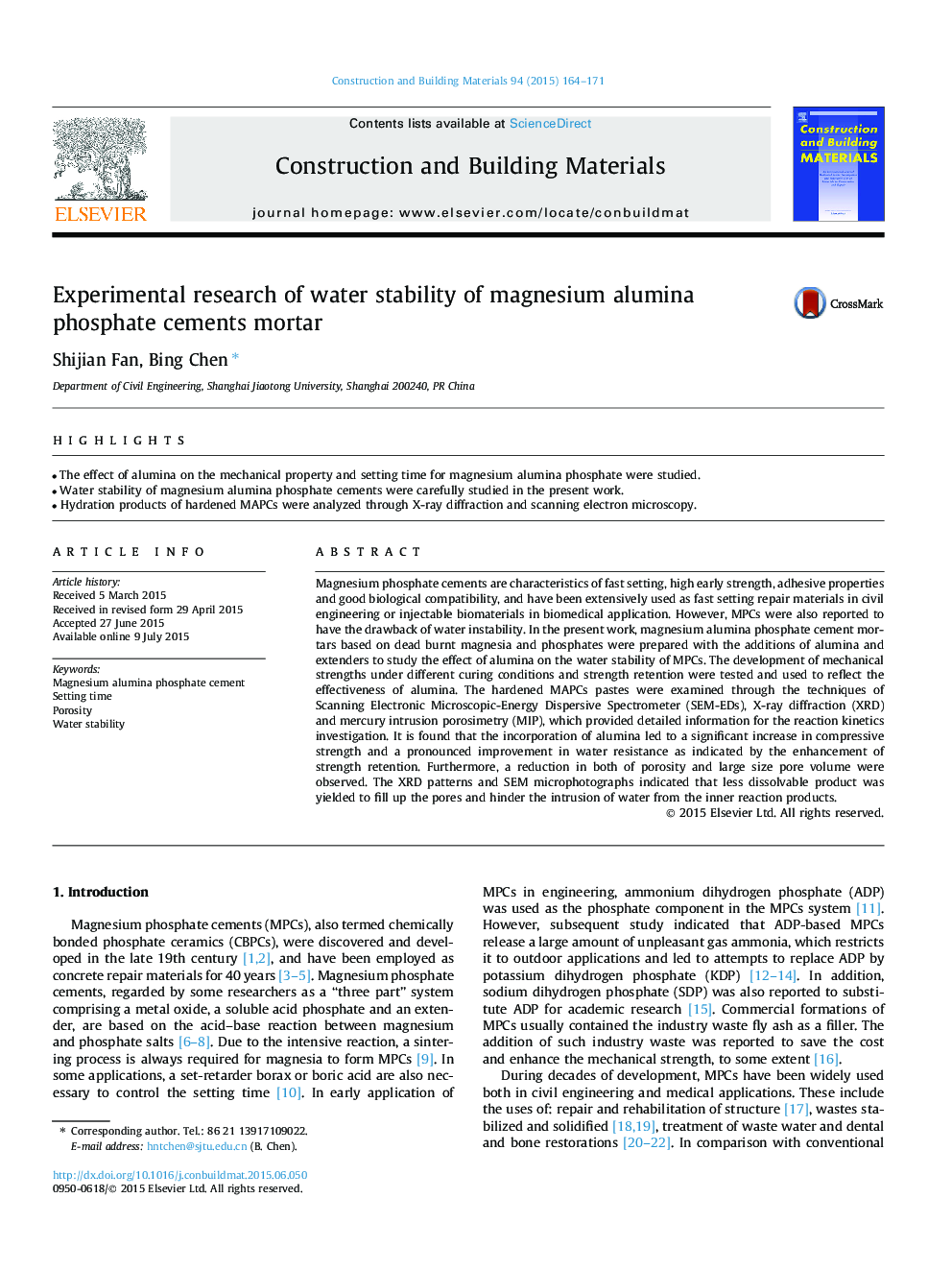| Article ID | Journal | Published Year | Pages | File Type |
|---|---|---|---|---|
| 6720024 | Construction and Building Materials | 2015 | 8 Pages |
Abstract
Magnesium phosphate cements are characteristics of fast setting, high early strength, adhesive properties and good biological compatibility, and have been extensively used as fast setting repair materials in civil engineering or injectable biomaterials in biomedical application. However, MPCs were also reported to have the drawback of water instability. In the present work, magnesium alumina phosphate cement mortars based on dead burnt magnesia and phosphates were prepared with the additions of alumina and extenders to study the effect of alumina on the water stability of MPCs. The development of mechanical strengths under different curing conditions and strength retention were tested and used to reflect the effectiveness of alumina. The hardened MAPCs pastes were examined through the techniques of Scanning Electronic Microscopic-Energy Dispersive Spectrometer (SEM-EDs), X-ray diffraction (XRD) and mercury intrusion porosimetry (MIP), which provided detailed information for the reaction kinetics investigation. It is found that the incorporation of alumina led to a significant increase in compressive strength and a pronounced improvement in water resistance as indicated by the enhancement of strength retention. Furthermore, a reduction in both of porosity and large size pore volume were observed. The XRD patterns and SEM microphotographs indicated that less dissolvable product was yielded to fill up the pores and hinder the intrusion of water from the inner reaction products.
Keywords
Related Topics
Physical Sciences and Engineering
Engineering
Civil and Structural Engineering
Authors
Shijian Fan, Bing Chen,
